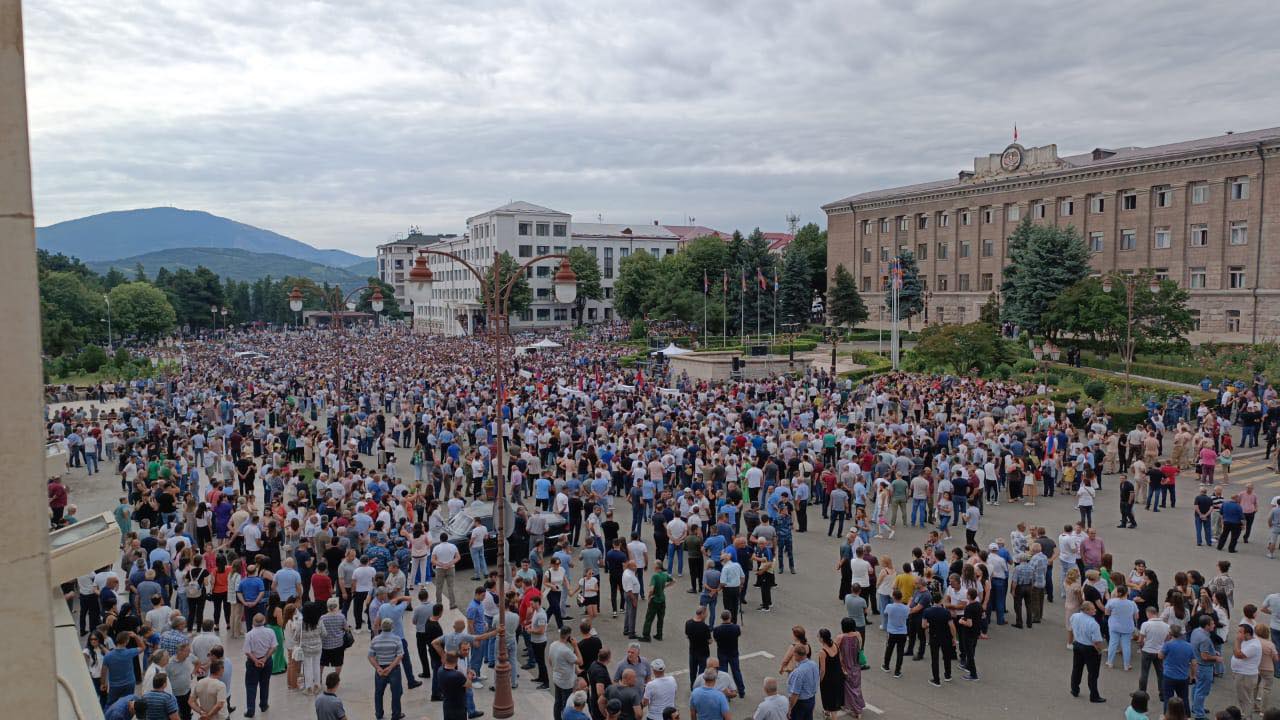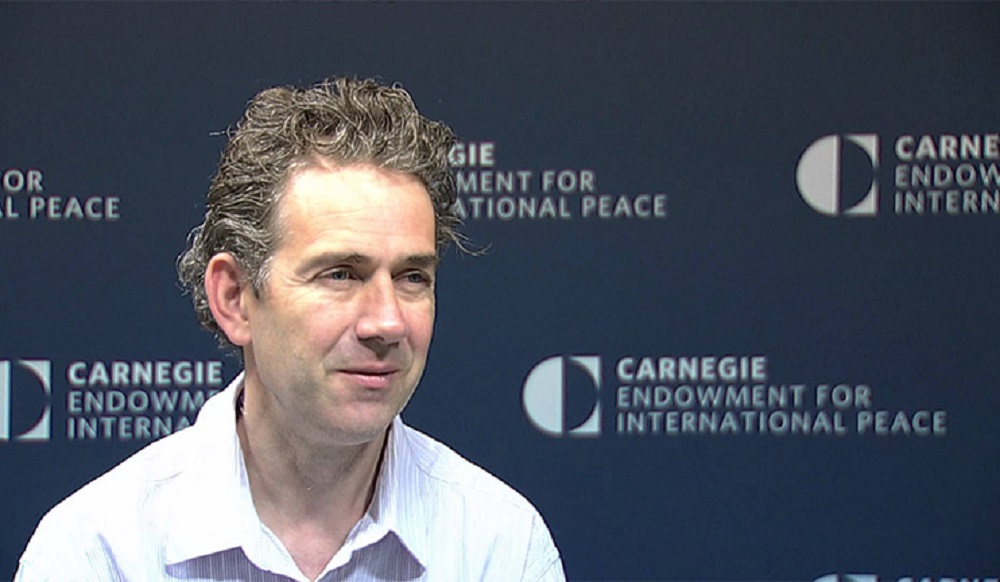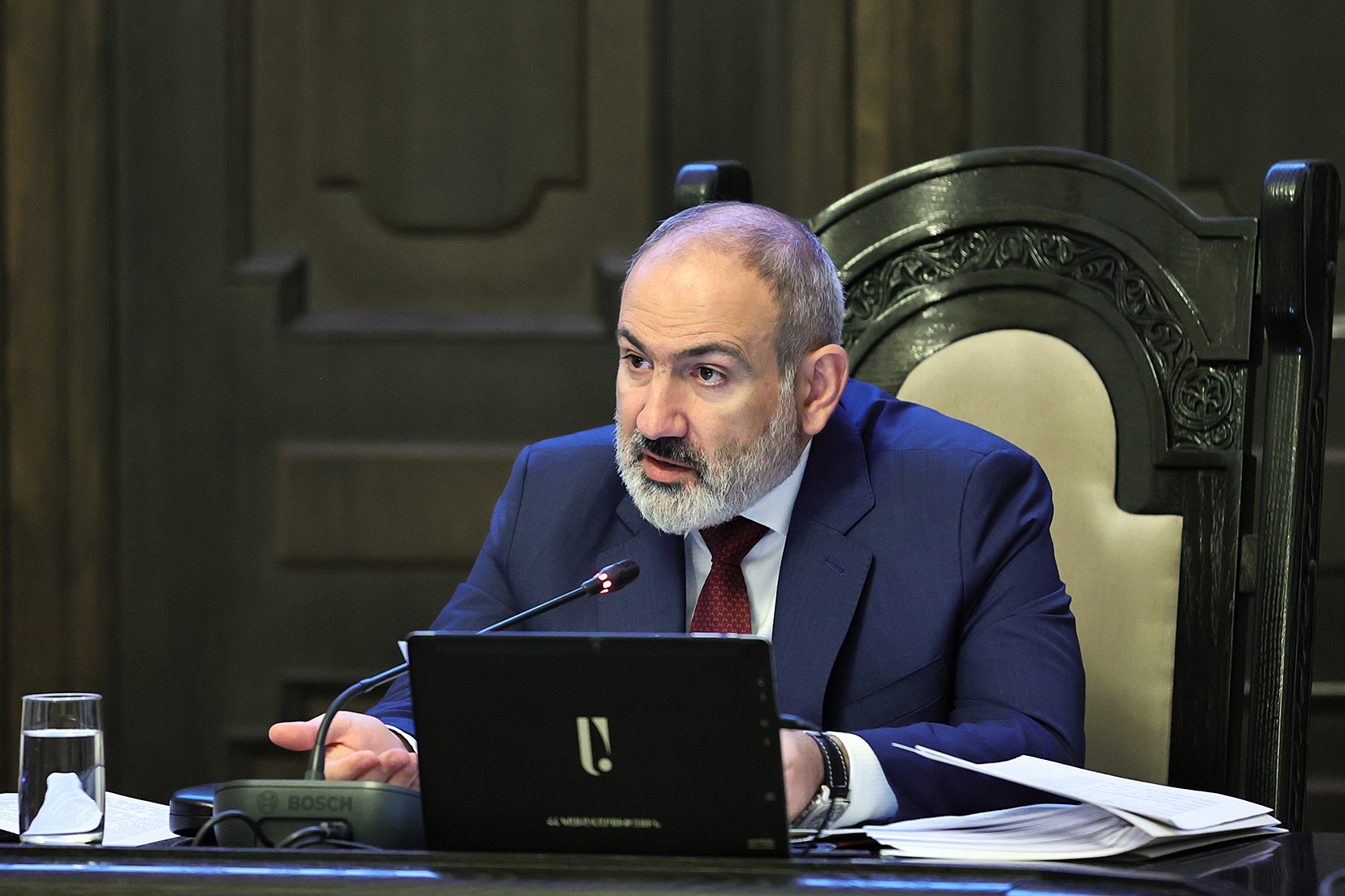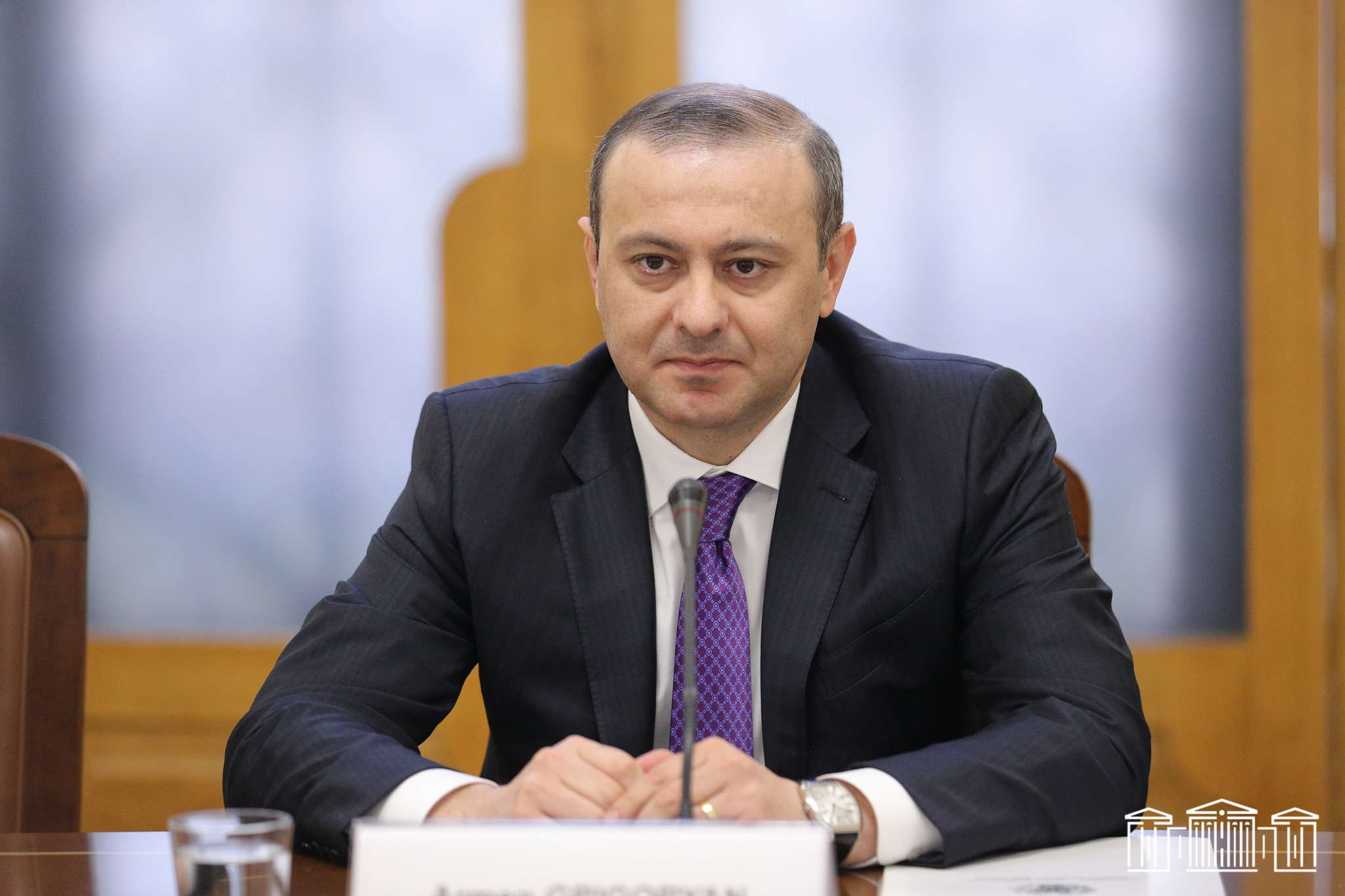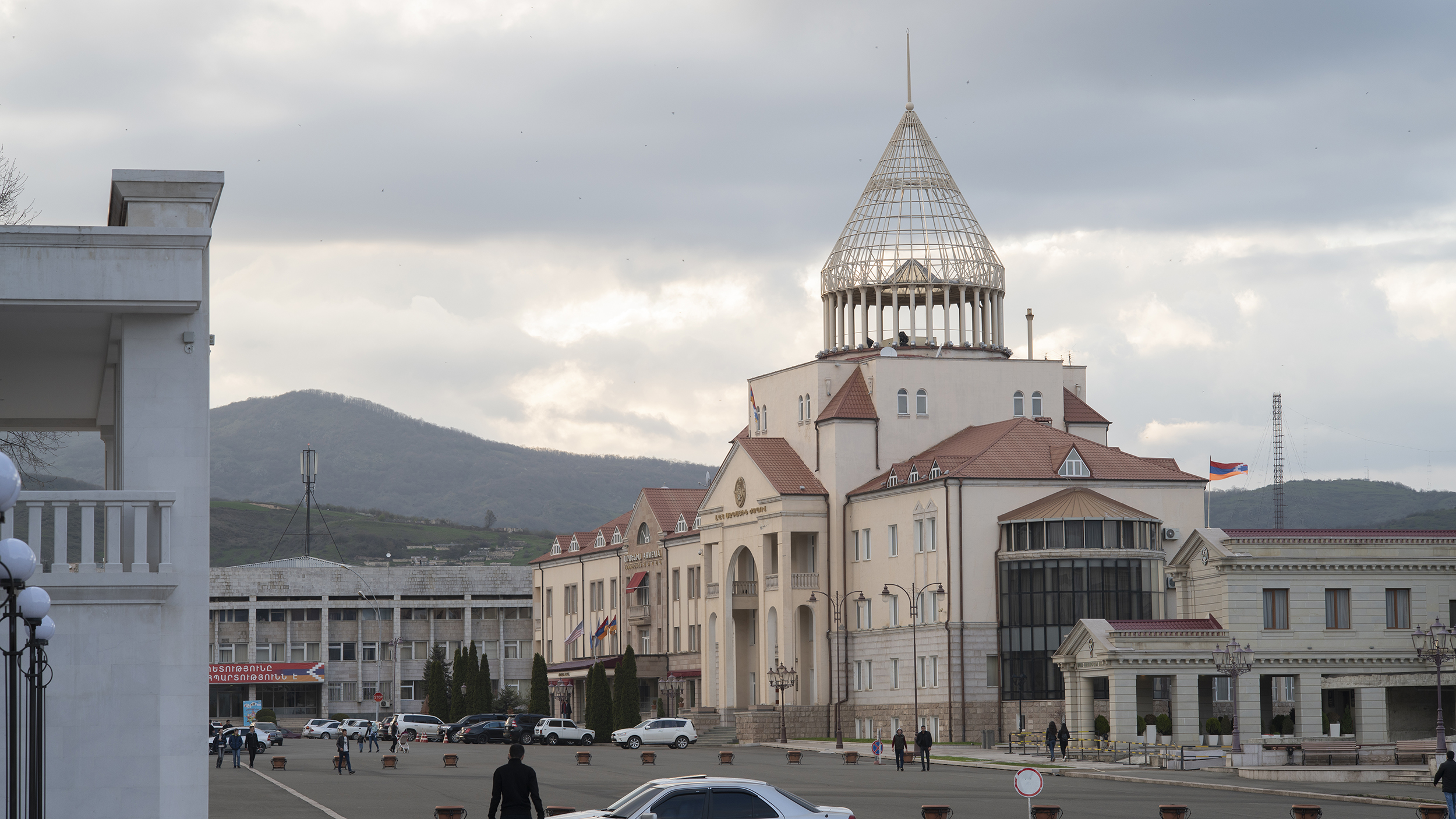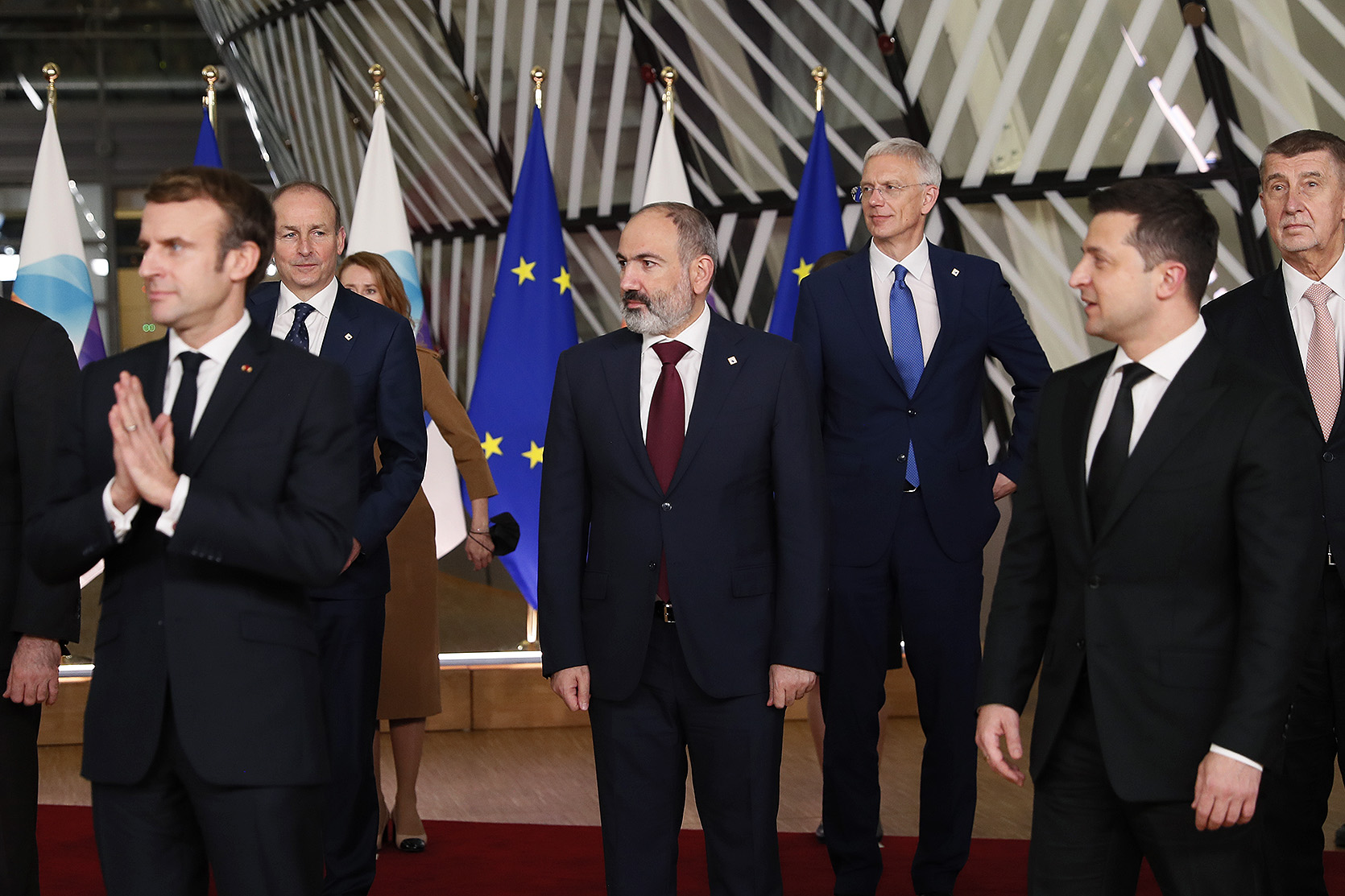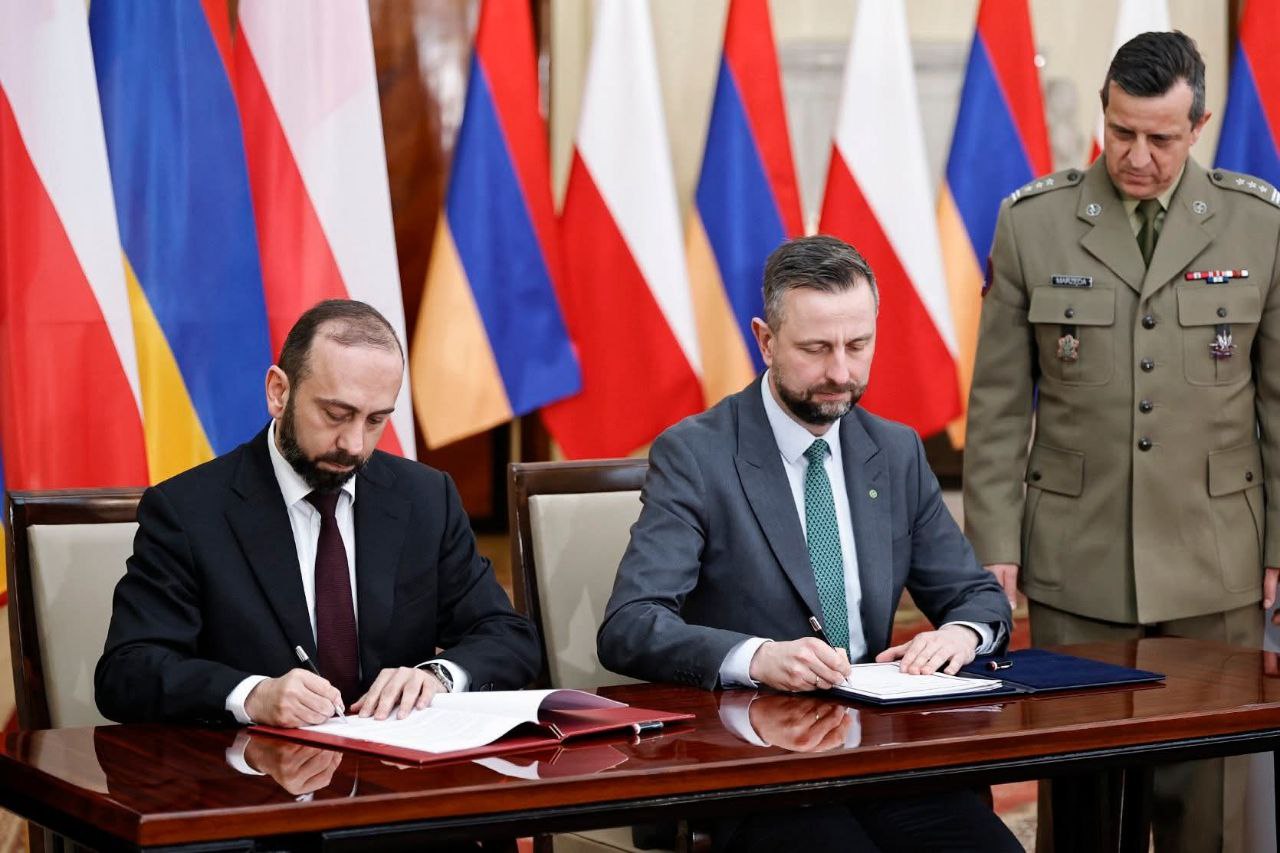“Azerbaijan is creating a ghetto in NK” and other statements from Pashinyan interview
AFP interview with Pashinyan
The Prime Minister of Armenia gave an extensive interview to Agence France Presse. He spoke of the humanitarian crisis in Nagorno-Karabakh, saying that it was “not just a political term or news headline.” Nikol Pashinyan also answered questions about the likelihood of war and negotiations with Azerbaijan, about the “balancing policy” between the West and Russia, and the possibility of the withdrawal of the Russian military bloc CSTO from Armenia.
- “Ethnic cleansing in NK is no longer a theoretical possibility” – Pashinyan
- “Azerbaijan’s aggression towards Yeraskh is a threat to peace” – Ombudsman of Armenia
- “The statement of the President of the NKR is dangerous and incomprehensible.” Opinion from Yerevan
Agence France-Presse – Mr. Prime Minister, do you believe in lasting peace with Azerbaijan?
Nikol Pashinyan – If I didn’t believe in it, there would be no point in taking part in negotiations at all, but believing does not mean that the result is guaranteed, because, understandably, it depends not only on me, it depends also on the positions of the President of Azerbaijan, and that we are not negotiating in a vacuum. There is an international situation, there is a geopolitical situation, there is a humanitarian situation, there are various human factors, which may emerge at any point and time. Everything influences the process, but of course, the greatest impact on the process have the direct negotiators, I mean, the President of Azerbaijan and myself.
AFP – What can you personally do in negotiations with President Aliyev in order to guarantee the dignity of the Armenians living in Karabakh, what keys do you have to determine the outcome of negotiations?
Nikol Pashinyan – You know, generally the conditions are very important. If we just step aside from the substance of the negotiations, because for an impartial observer of what’s happening in the negotiations room, one might think that in principle, everything is fine, that there is really nothing extraordinary happening, but then, after that, we need to come back and observe the actions and statements that are being made.
The most important thing, which in my opinion impedes the progress of the talks, is Azerbaijan’s continued aggressive rhetoric, hate speech towards Armenians and anything that is Armenian, hateful actions, and of course, the policy of revenge in relation to Armenians of Nagorno-Karabakh and obviously, the policy of ethnic cleansing.
Look at the situation that we now have in Nagorno-Karabakh. We have a humanitarian crisis there. When we say humanitarian crisis, for many people it may seem like a political term or a headline for news, but let’s delve into its substance.
It means, for instance, absence of essential goods: there is no vegetable oil in Nagorno-Karabakh, no sugar, there are no hygiene supplies, there is no butter, several types of foodstuffs missing.
The people of Nagorno-Karabakh are hard-working people of course, and in this agricultural season some products are produced, but because of the absence of fuel, the delivery of the goods to the potential consumers is almost impossible.
In Karabakh there is a certain stock of grain, but because of the absence of fuel, it cannot be delivered to the flour mills, and if in any way it is possible to deliver it to the flour mills, then it cannot be delivered to the bakeries because of absence of fuel, and if somehow it reaches the bakeries, it is impossible to bake the bread at industrial volumes because of the absence of electricity and fuel, but if it is somehow possible to bake it, then it is impossible to deliver it to the shops, and if somehow it is possible to deliver to the shops, people have transport limitations for reaching the shop to buy the bread, and if somehow they reach the shop to buy the bread, they do not have the required financial means to purchase the bread because they are deprived of employment.
If all these layers, all these difficulties are placed upon one individual, all that burden becomes obvious and understandable. Under these circumstances, it is clear that in the Republic of Armenia and also of course in Nagorno Karabakh, pessimism is growing day by day, which, however, does not change our policy in any way.
We are convinced that the method of resolving issues through negotiations has no alternative. And on the other hand, if issues are not resolved through negotiations, in the public these negotiations may be perceived as just waste of time, or creating the impression in the media that something is being done. These are all risks that can directly or indirectly affect the process.
AFP – What are your red lines in this process?
Nikol Pashinyan – We have said this a number of times: Armenia’s territorial integrity, sovereignty, and the rights and security of the Armenians of Nagorno-Karabakh. By the way, there is an important point to be made: rights and security on this level are terms, for people they are just terms. It’s very important that the terms be reflected in a way that people will be able to use, apply them, to have the rights and the security that would enable them to live, to self-realize in their environment, in their family, to develop within that environment.
It’s also very important to record that our position is that the issue of rights and security of the people of Nagorno Karabakh should be addressed in a dialoge, talks and discussions with the participation of the people of Nagorno Karabakh.
We call that Baku-Stepanakert dialogue, but given the disproportion of strength between Nagorno Karabakh and Azerbaijan, we think that if we leave Stepanakert and Baku face to face, Baku will have the opportunity of either turning that agenda into oblivion, or have a monologue and not a dialogue.
And that’s why our perception is that that dialogue should take place in the context of an international mechanism, where the international community will be the witness.
Armenia’s role here is difficult because Armenia’s interest in this process is perceived and interpreted by Azerbaijan as so-called encroachment or aspiration upon Azerbaijan’s territorial integrity. Because of that perception talks in this format have not turned out to be constructive, and this has been demonstrated by the whole history of negotiations.
AFP – Do you think that Azerbaijan is threatening the sovereignty and territorial integrity of Armenia, particularly considering the situation in Syunik, also the fact that the city of Jermuk came under fire last year? Do you consider this a threat from Azerbaijan to the sovereignty and territorial integrity of Armenia, and what do you think, can there be war again?
Nikol Pashinyan – In general, so long as a peace treaty has not been signed, and such a treaty has not been ratified by the parliaments of the two countries, of course, war is very likely. And generally, anywhere on the planet, where there is conflict situation that has not been resolved by a treaty, has not been addressed anywhere anytime, war may erupt. We need to know this. There are different scales of probability, but we should take this as a rule.
Azerbaijan’s obvious aggressive rhetoric, hate speech is added to this, the current geopolitical situation is added to this, where essentially the world order that some time ago was presumed to somehow exist, we now see it doesn’t exist by and large. This is also contributed by the breaching of the military balance between Armenia and Azerbaijan, and so on and so forth.
And of course new escalations, new wars are always likely, which does not mean that it is going to happen, but it also does not mean that it is not going to happen. By the way, every day, literally, violations of the ceasefire regime occure on the border between Armenia and Azerbaijan.
During my term as Prime Minister, in more than five years, there might have been a maximum of three days during which the ceasefire wasn’t violated.
AFP – Obviously, Russia did not meet Armenia’s expectations during and after the war. How do you justify close ties or trust towards Russia?
Nikol Pashinyan – That same question could be asked about any country, “how do you justify your good relationship with any country when in Nagorno Karabakh human rights are violated, there is a humanitarian crisis, ethnic cleansing is being prepared and those countries are not reacting properly?”, even the countries that consider human rights and the UN Charter, democracy and ethnic tolerance to be priorities for them.
So now you want to say that all those countries with which we have good relationship are doing their maximum to overcome the humanitarian crisis in Nagorno Karabakh? My direct answer to you will be no for a variety of reasons: some of them are buying gas, some are buying oil, some are thinking about their banking systems, and others have other concerns. But it would not be correct to say that they doing nothing.
We are not speaking about political or inter-ethnic conflict, we are talking about ongoing process of genocide, and not just its preparation. Any genocide you know wasn’t like that they woke up one day and started killing people, slaughtering people. Let’s go back to the Holocaust, the one that the world knows the best. Did Hitler come to power and the next morning pull out the sword and started chasing the Jews in the streets? It lasted years, it was a process, which could have been well predicted. It was expressed in rhetoric, it was expressed in policy.
Now in Nagorno-Karabakh they have created a ghetto, in the most literal meaning of the word. I say again, sometimes we do not deliver the terms understandably, we just give people headlines, “humanitarian crisis”. Some percentage of our audience well understands all the details of what’s going on, but the majority does not understand, that’s not their business, that’s not their activity.
But Azerbaijan is creating a Ghetto in Nagorno Karabakh today. What’s the international community’s reaction?
Russia asks us how we justify our good relationships with the West, is that what you expect of them to make a semi-statement that the Lachin Corridor should be opened? Yes, the Lachin Corridor has to be opened. The International Court of Justice rendered a decision back on February 22. That is a decision of the highest international court. By the way, Russia really doesn’t well recognize the jurisdiction of that court, but the international community, with the exception of Russia, recognizes it as the highest court.
And now Russia asks us “Is this what you expected of the West, when establishing such close relations with the EU and other partners, your expectation was that they would say, for example once a week that the Lachin Corridor should be opened?”
In the same way as we justify our relations with the West, in the same way we justify our relations with Russia. Like according to the logic of some western circles our relationship with Russia is not justified, because Russia is not fulfilling all its obligations, and is not meeting all of our expectations, similarly, Russia tells us the same about the West.
AFP – The long paradigm of Armenia’s foreign policy was complementarity between the West and Russia, but after the Ukrainian war, the situation has changed greatly. Now the countries are unlikely to be able to maintain good relations with both the West and Russia. How does this affect Armenia’s foreign policy?
Nikol Pashinyan – I think that complementarity is a catastrophic mistake for Armenia. And that is not a new mistake, it’s not even thirty years old, it isn’t even a 100-year old mistake. That mistake is much older.
I am not criticizing the past governments and I am not criticising anyone, because look, your question is about how Armenia is going to live between Russia and the West. But in reality we are not between Russia and the West, we are actually between Georgia, Turkey, Iran and Azerbaijan. And in reality, the countries of the region are among one another.
In our 2020 election program, the program of our government there is a clause which is called regionalization. I say again, experience and our history shows that this is not about 10, 20, 30 or even 40 years, this is about centuries.
We are living here, we are not living between Russia and the US, it’s Europe that lives between Russia and the US. We live between Georgia, Iran, Turkey and Azerbaijan. And the question is the following – should we manage our relations with our neighbors, I am sorry to use that word, through Moscow, Washington and Bruseels.
In terms of the paradigm – no, but in practical terms we lack that political tradition.
Deep down that’s the cause of our whole problem, because what we should me also concerns me, because there are many historical, social-psychological layers here, and this issue cannot be resolved on the level of an individual having power and mandate.[…]
The challenge here is that we are trying to change the name, saying a balanced and balancing policy is what we need.
AFP – You quite directly criticized the CSTO. Do you see a theoretical prospect of leaving this organization one day?
Nikol Pashinyan – No organization in the world is eternal, and every country makes decisions in accordance with its interests. The issue here is that we had and we still have an issue in terms of the effectivenes of the CSTO and the implementation of its commitments.
The question is not whether Armenia leaves or will leave the CSTO or not. The question is whether the CSTO is leaving Armenia.
I will say directly, there are many experts in Armenia, independent expers, who regularly send me reports stating that these processes demonstrate that the CSTO is exiting Armenia.
Moreover, there are many experts whose assessment is that Russia is exiting the region. This may seem like science fiction, but unfortunately, our people have seen this in history. After all, a consequence of what was the 1915 genocide of the Armenians, when Russia essentially had to exit the conflicting region under its domestic burden? And the Armenians, that had made a clear geopolitical choice, were left to face Turkey.
And naturally, this analysis has intensified because of an event that recently happened in Russia, that we all know very well. True, it lasted one and a half days, but dozens of analytical statements were sent to me during the one and a half days, saying that this is the 1915 scenario.
1915, 1917, 1918 – years of instability in Russia, Russia having to withdraw from the region and the genocide carried against the Armenian people. But now the problem is that in 1915 the Armenian people did not have a state, a statehood that would have the obligation of safeguarding its own people.
Now the Armenians have a state, and the policy of the state must be built in accordance with this logic, because the likelihood that one day we will see Iran or Turkey leaving this region is zero, but the likelihood that any geopolitical center which is currently present here, we may wake up one morning and find they have left, that likelihood is greater than zero.
Not necessarily with the intention of doing harm, not necessarily with the reluctance to carry out their obligations towards anyone, including Armenia.
I repeat, this is not a current day problem, not a problem of the last 10 or 30 years. This is a problem of the last 100, 150 years. And today our situation is very challenging, very difficult, but unlike a century ago, we currently have a state which is considered a democratic state, a developing state, which is considered developing and capable of negotiating. We have a chance to understand the risks and manage them.
Follow us – Twitter | Facebook | Instagram
Interview with Pashinyan France Presse (AFP)










